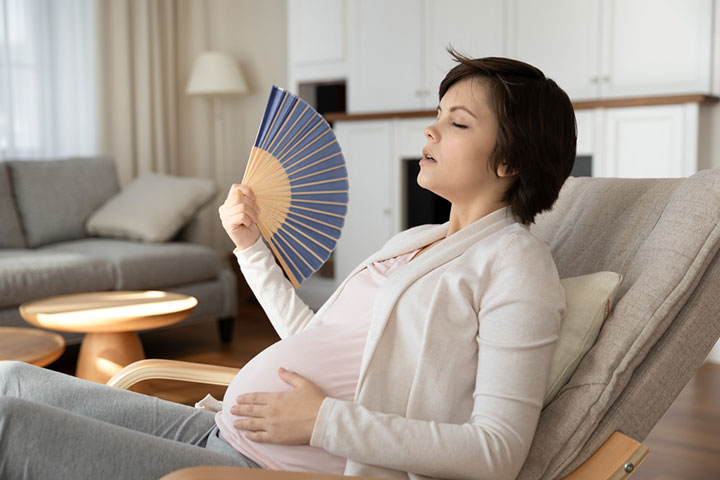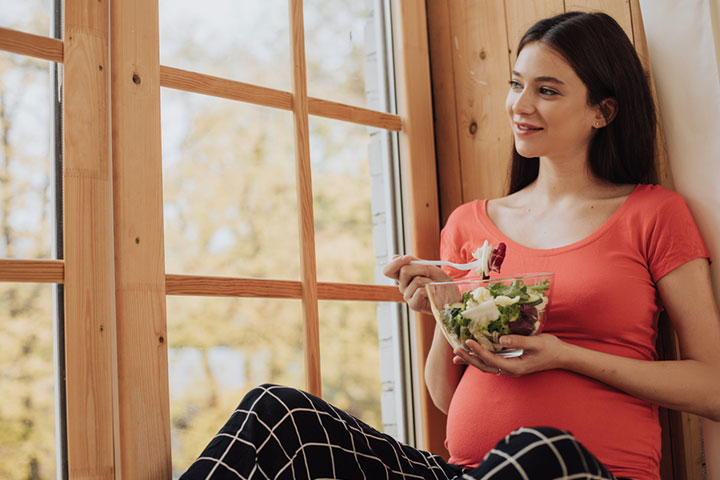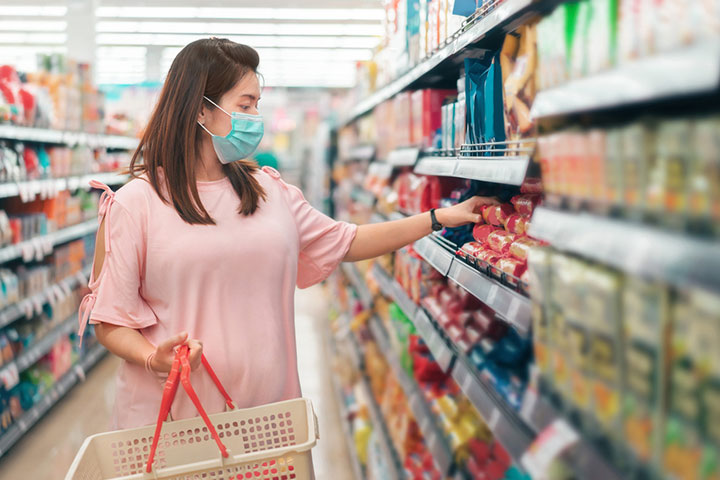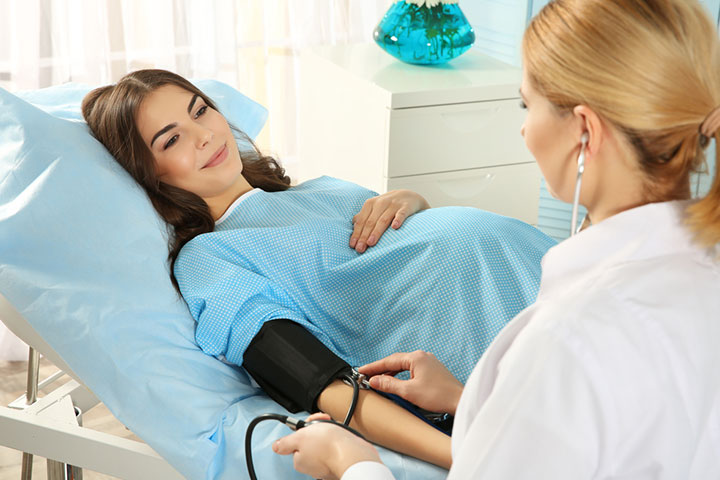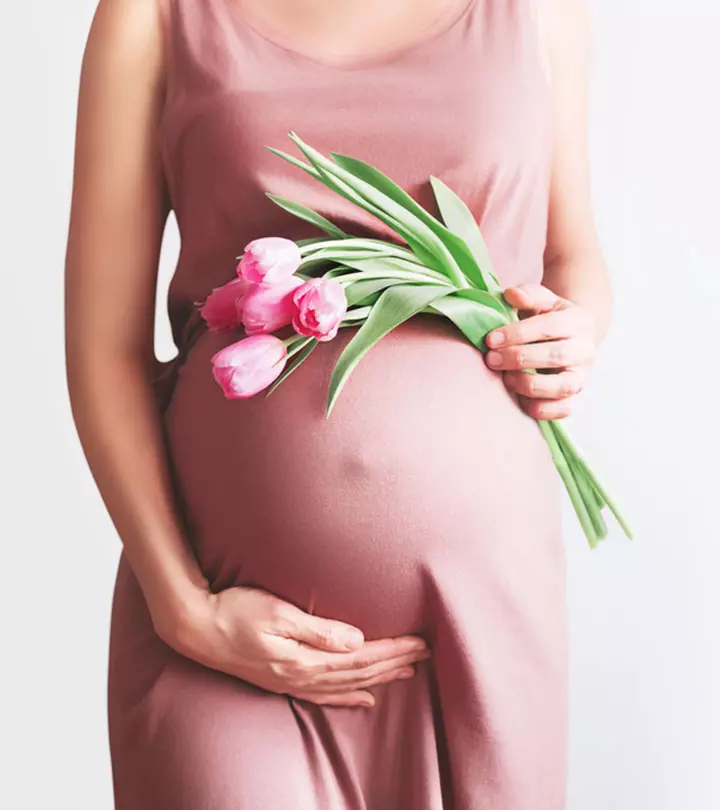
Image: Shutterstock
Being pregnant may be the most magic thing that ever happened to you, but it can also be the most nerve wracking thing you’ve had to endure. After all, you’re charged with growing a life inside your body. Feeding it well, making sure that you don’t exert yourself and staying away from any external factors that may affect the baby adversely. But this doesn’t just include staying away from smoking zones, the effects of global warming and climate change can have a huge influence on your pregnancy too. We’re sure you’re wondering how, but the answer is obvious. If you’re living in a place that is susceptible to wildfires or tornadoes. Or you’re on an island that houses an unpredictable volcano or hurricanes that come out of nowhere, chances are that you’re worried about what this means for you and your baby. Could you get a heat stroke if you go out for a walk? What happens if there’s a flood just as you go into labor? Whether we like to admit it or not, climate change changes everything. So, if you’d like to know how climate change can affect your pregnancy and what to do about it, keep on reading.
Disproportionate Impacts Of Climate Change
The impacts of climate change are different in different places. In developing countries, the most significant threat they face due to climate change is malnutrition. They rely heavily on factors like stability of the weather and steady rainfall in order to produce enough grain to keep the country fed. When they realize that they are unable to do so, these people often migrate, which leads to further malnutrition along the journey. This is the plight of many pregnant women as well. However, climate change isn’t a challenge that only developing countries face. Pregnant women in the US are also affected, just in different ways. Just think of all the air pollution and extreme heat in major cities. Do we really think that we would be immune to the damage it can do? Pregnant women are more likely to suffer from heat strokes and heat exhaustion as it is because the pregnant body has to work harder to cool itself. What’s worse is that these climate issues are becoming more and more unpredictable. A toxic environment can be detrimental for the health of a pregnant woman and her infant. So, we need to take precautions to ensure that we minimize the impact that climate change has on pregnancy.
What Hopeful Parents Can Do
1. Implement Some Health Tips Into Your Daily Life
When you’re pregnant it can be easy to get lost and a little overwhelmed with all the advice and opinions coming your way. But don’t forget the health tips that you’ve followed throughout your life. Stay hydrated and drink cool water, make sure you do some form of physical activity during a cooler part of the day without straining yourself too much. It’s important to stay as fit, fine and strong as possible. If you live in an area with a lot of air pollution, invest in an air purifier, keep your windows shut and wear a mask when you step out of your home. Be mindful of your environment and what you allow yourself to be exposed to.
2. Limit Your Exposure To Toxins
Unfortunately the air we breathe isn’t the only thing you need to be concerned about. Pregnant women also need to be aware of the effects of plastic chemicals in drinking water and in our food supply. This too can affect your health and fetal health. The chemicals in plastic that enter our systems can impact our fertility and fetal health as it crosses the placenta into the baby’s bloodstream. So make sure you use a water purifier as well and try to eat more plants instead of processed foods.
3. Speak With Your Medical Provider
Your pregnancy care provider should educate you on ways to avoid environmental toxins in the same way that they educate you on taking prenatal vitamins and avoiding smoking. So don’t be afraid to talk to them about any concerns you might have. For example, you can always ask them what dietary changes you can make if you are afraid of consuming plastic and chemicals unknowingly. You can also ask them what kind of face mask you can use to avoid exposure to air pollution or what to do in case a wildfire breaks out.
Climate change doesn’t mean that you can’t have a healthy pregnancy. You absolutely can! All you need to do is implement a few health tips, be mindful to stay away from toxins and communicate your concerns with your medical provider. This way you will be at ease and your baby will be as safe as they can be.
Sources
- Assessment of Awareness Regarding Health Hazards of Plastic Chemicals and their Warning Label among a Sample Population of Varanasi City: A Cross-sectional Study, NCBI
- Food Security & Human Mobility, MIgration Data Portal

